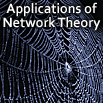Speaker
Atieh Mirshahvalad
(IceLab, Umeå University)
Description
Researchers use community-detection algorithms to reveal
large-scale organization in biological and social systems
modeled by networks. But this community detection approach
is useful only if the communities are significant and not a
result of noisy data. To assess the statistical significance
of the detected structure, the robustness of the network
communities, one approach is to perturb the network
structure and measure how much the communities change.
However, perturbing sparse networks is challenging because
they are inherently sensitive; the networks easily shatter
if we perturb the networks by removing links. Here we
propose a method to perturb sparse networks and assess the
significance of their communities. In our approach, we first
resample the network by adding extra links based on local
information and then we aggregate the information from
multiple re-sampled networks to find a coarse-grained
description of significant clusters. We test our method
both on benchmark and real-world networks, and find good
performance on inherently sensitive sparse networks.

